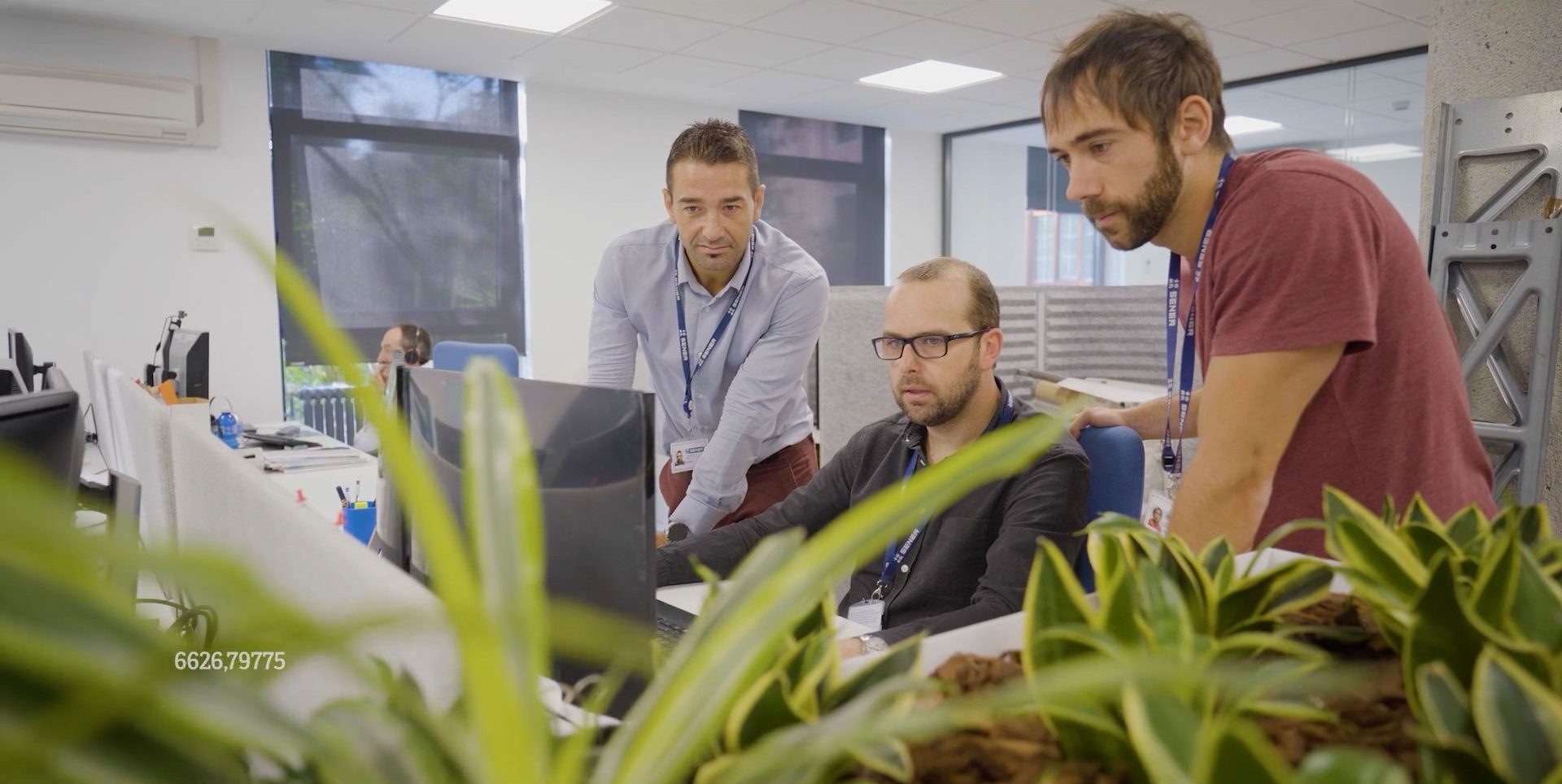The finalists have presented their solutions to highly relevant solutions with an impact on society: from mobile bridges, sustainable installations and autonomous land navigation to applying the circular economy to the naval field and harnessing artificial intelligence for improved site safety. Madrid’s Colegio El Prado, Zaragoza’s Colegio Cristo Rey and Bilbao’s Liceo Francés all won first prize in their respective editions.
The finals of the 2024-2025 edition of ‘Challenge for Science‘ were held in April. The educational programme is led by the Sener Foundation, a non-profit within the engineering and technology group Sener, and aims to bring students of compulsory secondary education (ESO) closer to the world of science, technology and engineering. A total of 33 schools in the Basque Country, Catalonia, Aragon and the Community of Madrid took part, in collaboration with Librerías Troa.
This year, students worked on highly relevant challenges with an impact on society: from mobile bridges, sustainable installations and autonomous land navigation to applying the circular economy to the naval field, nuclear energy, hospitals of the future, harnessing artificial intelligence for improved site safety, and satellite services.
The following schools won first prize: Colegio El Prado (Madrid) for their application to streamline emergencies’ waiting lists in hospitals; Colegio Cristo Rey (Zaragoza) for their proposal for smart structures; and Liceo Francés (Bilbao) for their proposal for smart structures.
Colegio El Prado wins first prize in the Madrid edition on 8 April
The event for Madrid schools took place in the Technical School of Engineering and Telecommunications Systems (ETSIST) at Madrid Polytechnic University, with 10 schools submitting proposals.
- First prize went to the Saniquebue team at Colegio El Prado for their application to streamline emergencies’ waiting lists in hospitals. The team was made up of Gonzalo Tablas, Gerardo González, Mateo Vázquez, Antonio Muriel, Juan Capapé and José Andrés Méndez.
- Second prize went to the team at Colegio Santa María de la Hispanidad for their Naval Circular Economy project; a submarine for the collection of marine plastics. This team was made up of Carla Albagme, Álvaro Camacho, Aitor Frutos, Lucas Pinel, Pablo Román and Rocío Sánchez.
- Third prize went to the team at Colegio Montealto, for Avalloon, their Smart Facilities proposal consisting of a mobile bridge. The team was made up of Clara Berlanga, Gabriela Marco, Mariana Vázquez, Loreto Saucedo, Patricia Medina and Ana Sánchez de Diego.
Colegio Cristo Rey de Zaragoza wins first prize in the Madrid edition on 9 April
A second final took place on 9 April in Madrid, with 12 schools from Madrid, Zaragoza and Barcelona taking part.
- First prize went to the ConectaGirls team at Colegio Rey Zaragoza School for their Smart Structures proposal. The team was made up of Daniela Albasini, María Fernández, Ana Obón, Martina López, Claudia Beltrán and Valeria Pérez.
- Second prize went to Colegio Aldeafuente for their Two Peaks facilities project harnessing the vibrations of large-scale events for energy generation. The team was made up of Cecilia Méndez, Inés Núñez, Alba Schropp, Belén Vassallo, Amanda Schopp y Paloma Guitián.
- Third prize resulted in a draw, going to both Colegio Árula for their Liceo Maya proposal (a sustainable school) and Colegio Internacional SEK Cataluña for their MoviFlex project (mobile bridge). The Árula team was made up of Javier Otero, Carlos Gil, Héctor Ayuso, Bruno Mora, Mario Pérez, Julio Serván Ovide and Daniel Ruisánchez; and the SEK Cataluña team was made up of Álvaro Calvo, Danele Castellanos, Timur Shatkovski, Leonardo Pokorski, Enric López Llevot and Kevin Cao.
In the Bilbao edition, first prize went to Liceo Francés de Bilbao
The Bilbao event took place at the Fundación BiskayTik with submissions from 11 schools.
- First prize went to the Chu Bridge team at Liceo Francés de Bilbao for their Smart Structures (mobile bridge) proposal. The team was made up of Cayetana Echevarri, Hugo Aguado, Marcela Gutiérrez, Nicolás Herreros, Marcos Fraile and Ángel Serra.
- Second prize went to Colegio Vizcaya for their Nuclear Energy project. The team was made up of Jorge Bengoa, Oier Calzada, Mario Fernández, Mikel Flores, Alejandro Garay and Hodei Huete.
- Third prize went to Colegio San Pelayo for JENA, their proposal harnessing AI for improved site safety (smart vests). The team was made up of Nahia Fernández, Arantxa Etxenagusia, Erika Villaverde and June Padilla
The jury – composed of Sener professionals – highlighted the quality of the students’ presentations and originality of their proposed solutions to challenges.






